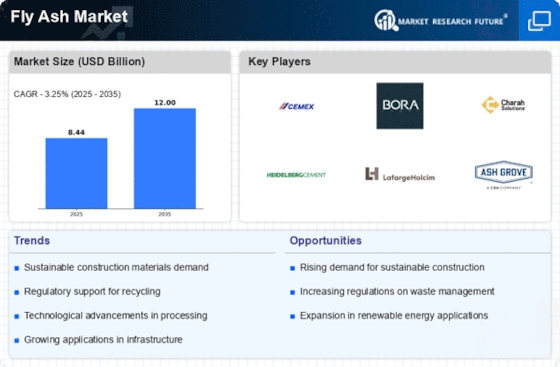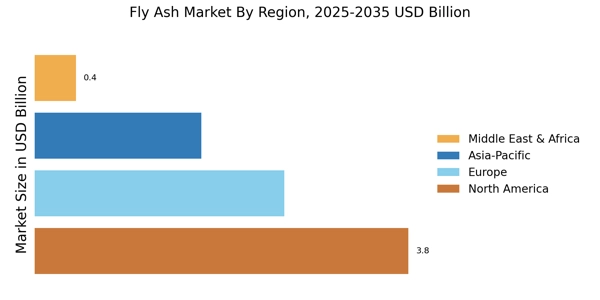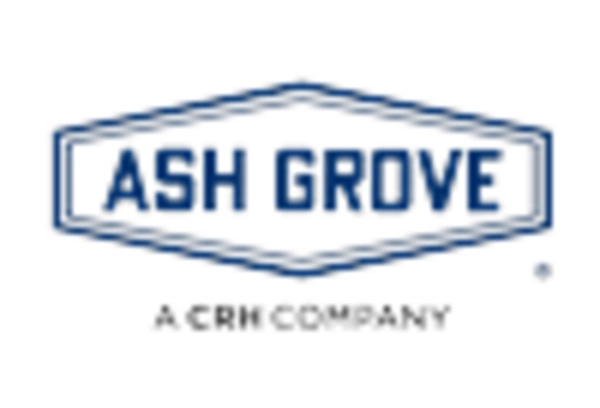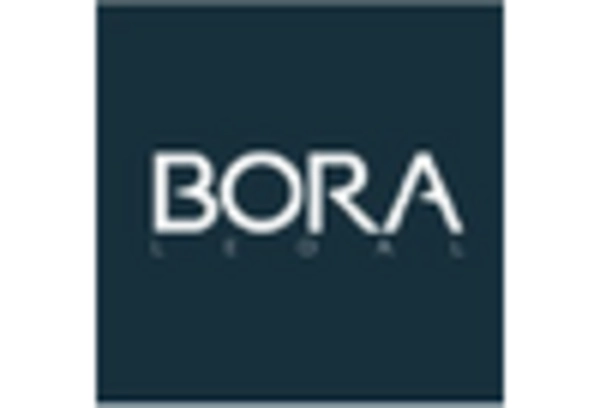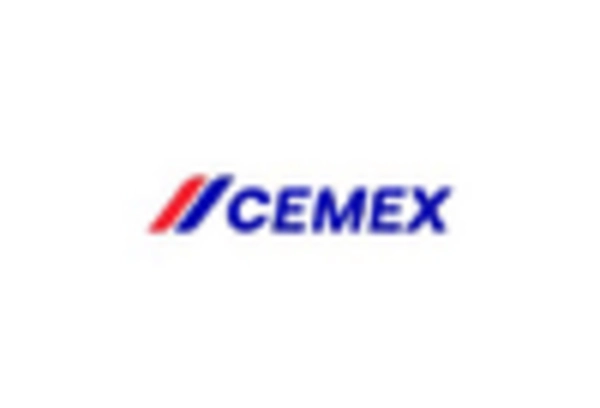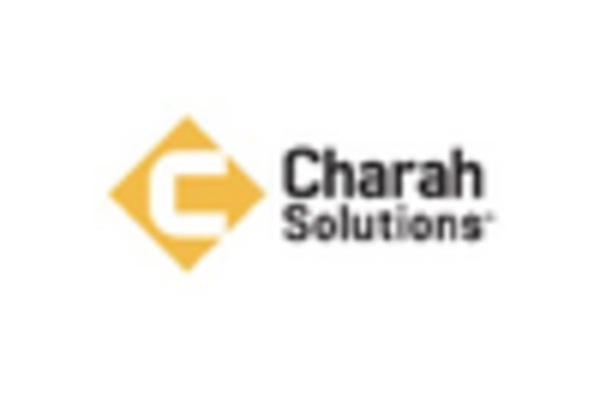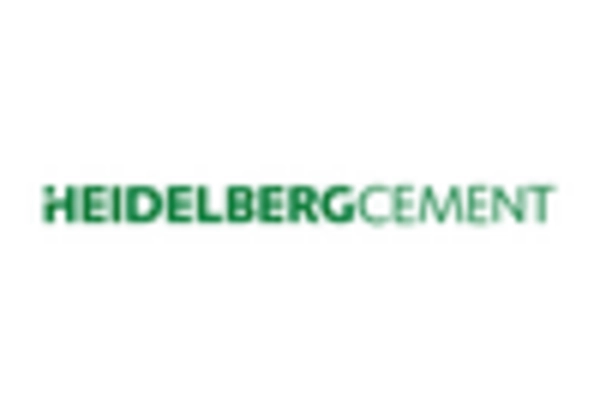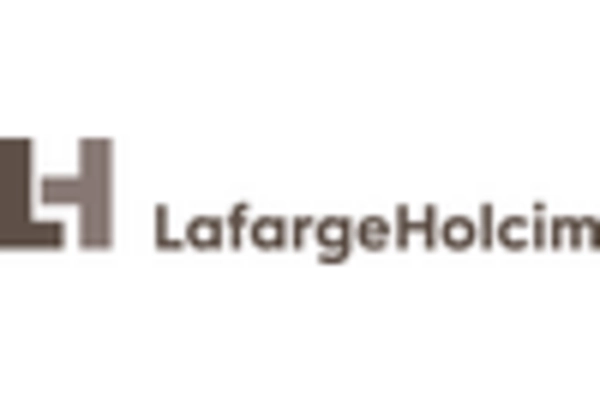Rising Demand in Construction Sector
The Fly Ash Market is significantly influenced by the rising demand in the construction sector. With urbanization trends continuing to escalate, there is an increasing need for infrastructure development, including roads, bridges, and residential buildings. Fly ash is increasingly recognized for its ability to enhance the properties of concrete, making it a preferred choice among construction companies. Recent data indicates that the construction sector is expected to grow at a compound annual growth rate of 4.5% over the next few years, which directly correlates with the rising consumption of fly ash. This growth presents a substantial opportunity for the Fly Ash Market, as more construction projects seek to incorporate fly ash to improve material performance and sustainability.
Economic Benefits of Fly Ash Utilization
The economic advantages of utilizing fly ash are becoming increasingly apparent within the Fly Ash Market. The incorporation of fly ash in concrete not only enhances performance but also reduces costs associated with raw materials. By substituting a portion of cement with fly ash, construction companies can achieve significant savings, as fly ash is often less expensive than traditional cement. Additionally, the use of fly ash can lead to lower transportation costs due to its availability in proximity to coal-fired power plants. Recent analyses suggest that the cost savings from using fly ash can range from 10% to 20% in concrete production. This economic incentive is likely to drive further adoption of fly ash in the construction sector, thereby bolstering the Fly Ash Market.
Growing Awareness of Environmental Benefits
The Fly Ash Market is benefiting from a growing awareness of the environmental advantages associated with the use of fly ash in construction. As stakeholders in the construction industry become more conscious of their environmental impact, there is a marked shift towards materials that contribute to sustainability. Fly ash, being a byproduct of coal combustion, offers a viable solution for reducing waste and minimizing the need for virgin materials. This awareness is leading to increased adoption of fly ash in concrete production, with studies indicating that using fly ash can reduce greenhouse gas emissions by up to 30%. Consequently, the Fly Ash Market is poised for growth as more companies prioritize sustainable practices and seek to incorporate fly ash into their projects.
Regulatory Support for Sustainable Practices
The Fly Ash Market is experiencing a notable boost due to increasing regulatory support for sustainable construction practices. Governments are implementing stringent regulations aimed at reducing carbon emissions and promoting the use of recycled materials in construction. This regulatory environment encourages the adoption of fly ash as a supplementary cementitious material, which not only enhances the durability of concrete but also reduces the overall carbon footprint of construction projects. As a result, the demand for fly ash is projected to rise, with estimates suggesting a growth rate of approximately 5% annually over the next five years. This trend indicates a shift towards more environmentally friendly construction practices, positioning the Fly Ash Market favorably in the context of sustainable development.
Technological Innovations in Fly Ash Utilization
Technological advancements are playing a crucial role in shaping the Fly Ash Market. Innovations in processing and application techniques are enhancing the efficiency and effectiveness of fly ash in various construction applications. For instance, advancements in the production of high-quality fly ash and its integration into concrete formulations are leading to improved performance characteristics, such as increased strength and reduced permeability. Furthermore, the development of new technologies for the utilization of fly ash in other sectors, such as road construction and soil stabilization, is expanding its market potential. As these technologies continue to evolve, they are likely to drive further growth in the Fly Ash Market, potentially increasing its market share in the construction materials sector.


